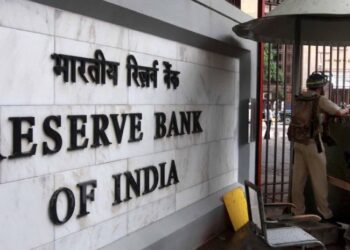Human Rights Council
Thirty-fourth session – Agenda item 2
Annual report of the United Nations High Commissioner For Human Rights and reports of the Office of the High Commissioner and the Secretary-General Written statement* submitted by the Association desetudiants tamouls de France, a non-governmental organization in special consultative status
The Secretary-General has received the following written statement which is circulated in accordance with Economic and Social Council resolution 1996/31.
(13 February 2017)
* This written statement is issued, unedited, in the language(s) received from the submitting non-governmental organization(s)
TESO Ask for International independante investigation*
The Tamil Eelam Supporters Organization (TESO) is an Eelam Tamil supports organization founded in Madras on 13 May 1985 by the Dravida Munnetra Kazhagam (DMK), presently the principal opposition party in the India State of Tamil Nadu TESO also comprises of the Dravidar Kazhagam and Viduthalai Chiruthaigal (a political party). In partnership with Association Bharathi Centre Culturel Franco – Tamoule.
When the Central Government of India ordered Tamil Eelam leadership to be sent out of Madras, thousands of Tamilians marched along the streets of New Delhi protesting against the provocative order. Five days later TESO successfully prevented movements of trains throughout Tamil Nadu as a protest against the extradition of the Eelam leadership. When the situation on the borders between India and Sri Lanka were tense, Nedumaran heroically sailed to Sri Lanka, videotaped the plight of Tamils in Sri Lanka and on his return, went straight to New Delhi to meet Prime Minister Rajiv Gandhi to apprise him of the situation in Sri Lanka. Rajiv Gandhi refused to meet him and thus showed his indifference to the sufferings of the Tamils in Sri Lanka.
TESO calls on the UNHRC to urge the Sri Lankan government to fully implement human rights for all citizens of Sri Lanka, and a political solution involving the full participation of the Tamil population, ending the systematic historical discriminatory measures of the Sri Lankan state against the Tamil people.
Urgent confidence building measures need to be taken to assure the Tamils that the UN is concerned about their plight. In Mannar the entire village of Mullikulam is displaced as a big Sinhala naval complex is coming up what is the fate of these displaced people?
On the other hand, Sinhala soldiers are encouraged to resettle with them in the north as they are given newly built houses. New permanent military cantonments are dawning the north. There are also instances of the soldiers being encouraged to marry local Tamil girls with a long term plan of wiping out the Tamil race, a la Kosova-Bosnia strategy! Leading to change in the demographic pattern of the North.
The presence of these soldiers are a curse on to the Tamils as the original symbols of the Tamils are now being replaced by the victorious Buddha, dotting all the street corners, new Buddhist temples are a common sight where only the soldiers are Buddhists. All the Tamil sign boards and directions are replaced by Sinhala boards which can be read only by the soldiers. All along the A9 small Tamil businesses are replaced by the Sinhala owned supermarkets and hotels. How will the ordinary Tamil survive this state sponsored economic onslaught of the Sinhalese?
The uncase of single women headed families fearing for their safety in the presence of large number of armed personnel of the forces is deplorable, some important cultural, religious and remembrance sites being damaged and destroyed, and free availability of liquor, cigarettes and narcotics in Tamil areas to spoil the younger generations as well as blue films sold at every corner.
As the 34th Session of the United Nations Human Rights Council (UNHRC), at which Sri Lanka is to be taken up for discussion as provided by the Resolution titled ‘Promoting Reconciliation, Accountability and Human Rights in Sri Lanka (Resolution 30/1)’ is approaching, it is important to keep Sri Lanka under the radar of the UNHRC.
In light of the limited progress made on the commitments made in Resolution 30/1, we urge you to support a comprehensive resolution that continues to monitor the situation in Sri Lanka, and provides for the Office of High Commissioner for Human Rights (OHCHR) to monitor and report back to the UNHRC in 18 months. The continued engagement by the UNHRC on Sri Lanka is critical at a moment when significant reforms are at stake.
The draconian Prevention of Terrorism Act (PTA) and formulating new legislation in compliance with international law or the enactment of domestic legislation criminalizing enforced disappearances is yet to take shape. As a token gesture some land releases in the North and East and the enactment of legislation on the Certificates of Absence have been made.
Progress on most commitments is extremely disappointing. The High Commissioner for Human Rights to the Council, in his oral update in June 2016, raised concerns on the inaction of the Government of Sri Lanka. He went on to urge the Government of Sri Lanka to have ‘a comprehensive strategy that enables it to pursue different processes in a coordinated, integrated and appropriately sequenced manner.
The report by the Consultations Task Force released the month confirms the support across Sri Lanka for the commitments made in 2015 and reiterates the need for urgent steps by the Government of Sri Lanka. The highlight of this report is the reiteration of the UNHRC recommendation to set up a Hybrid court to deal with the issues related to War Crimes and Crimes against Humanity. Only the setting up of such a court will infuse confidence in the victim community who have continued to suffer physically and psychologically as a result of the dirty politics played by successive Sinhala States. In this context the TESO is attaching the resolution passed unanimously in its meeting which is relevant even to this day.








